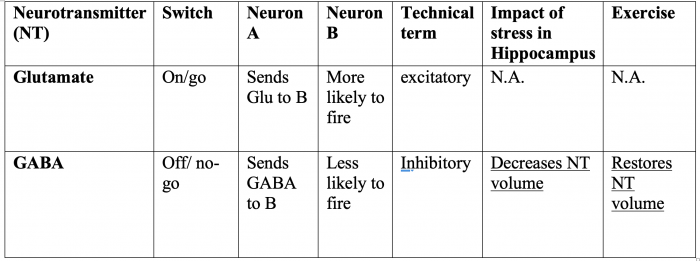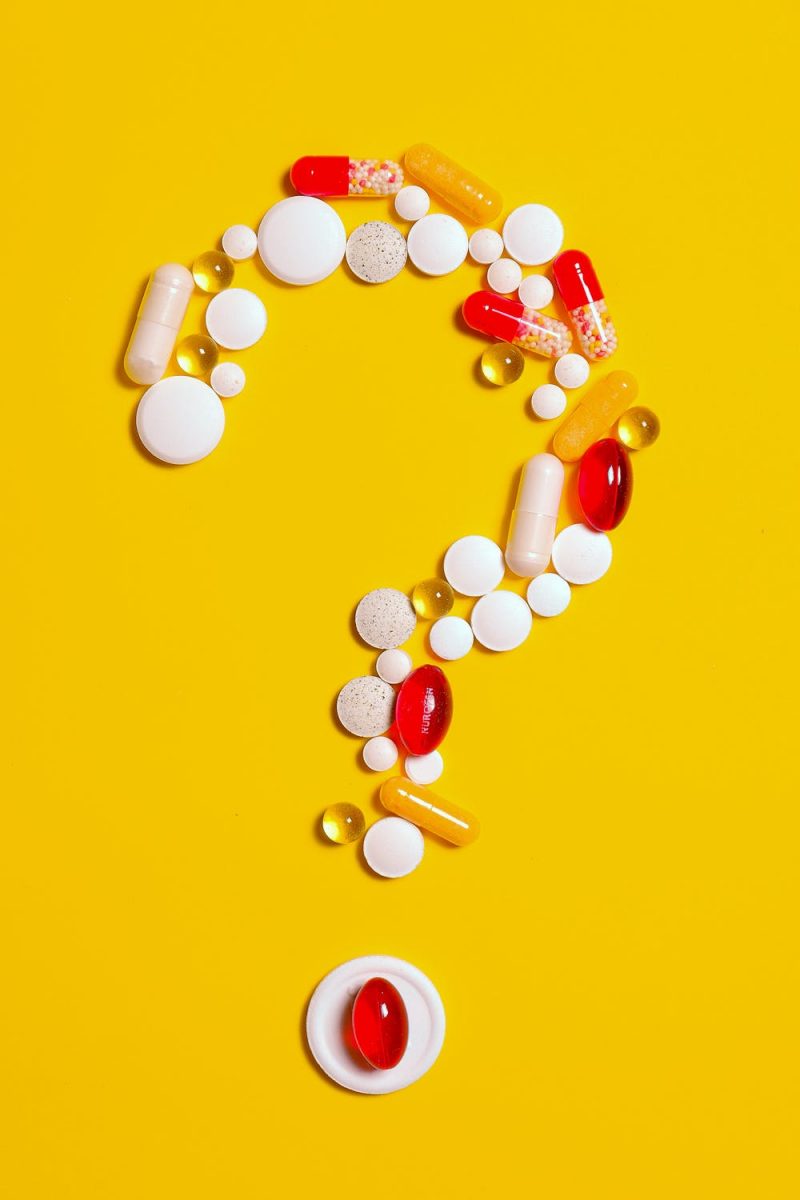If I told you that the FDA just approved a new drug that has been shown to dramatically reduce stress, improve quality of sleep, and boost your memory, be honest, would you be interested?
I am happy to report that, indeed, there is just the product already on the market—good, old-fashioned exercise. Yes, folks, you heard me right. Exercise.

You might be saying, Kenny, this is nothing new, we’ve all known for ages that working out is physically good for you, which in turn helps your mental health…why should I be excited? If that’s you, then well done, that’s a great logical argument!
However, recent neurological evidence has emerged which suggests that exercise actually directly affects neurobiology in several key ways. Grant me a few minutes of your time and hopefully, you’ll be on your way to understanding some hot topics in neuroscience that have great potential for self-improvement!
Exercise can reduce stress by re-establishing neurotransmitter equilibrium in brain areas involved in stress-inducing scenarios
Think about the last time you were stressed. Like, really stressed out. You may have felt butterflies, sweaty palms, sick to your stomach, wanted to run for cover, or maybe even hit something. Not fun. But for all the negativity around stress, it can be a natural part of the human experience, and some acute stressors are even good for us! For instance, being a little bit nervous can improve performance on exams. This is all well and good, but stress over an extended duration or of an intense severity can lead to mental health concerns like major depressive disorder (MDD) and post-traumatic stress disorder (PTSD). Clearly, something is going wrong here, what’s happening at the neurological level?
Interestingly, stress-induced disorders (e.g. MDD and PTSD) correlate with low levels of GABA (see table), in a specific part of the brain called the hippocampus, which is critical for making new memories. GABA is the Ying to Glutamate’s Yang, The table below should help explain each neurotransmitter and show how exercise can “bring balance to the neurochemical force” by directly increasing GABA in the hippocampus.

Exercise can improve sleep by significantly reducing sleep apnea
Sleep apnea is defined as having too many pauses in breathing happen during a night’s sleep. This leads to lower blood oxygen levels, which can be very harmful for cognition, learning, memory, and vascular and respiratory health. However, there is some good news! A new research paper (July 2020) provided evidence that exercise lowers the rate of sleep apnea! Because this paper is so new there’s a lot more work that needs to be done looking at what’s happening in the brain to support these changes. Given that stress increases the prevalence of sleep apnea, one hypothesis is that the same stress-relieving effects of exercise mentioned above are also at work here, that lowering the stressful “flight-or-fight” response leads to more restorative sleep!
Exercise bolsters memory and learning by strengthening local neural connections in areas of the brain key for memory formation
Last, and (at least for me) the coolest new finding of exercise’s outsize role in modulating neurobiology is that exercise makes us remember better.
Another July 2020 report that reviewed 13 studies found that exercise (2 minutes- 1 hour) produced short term advantages in many different memory tests! This is a super interesting finding because it shows how changeable our brains are, and how what we choose to do with them impacts our health at a very fundamental level.
Again, though it’s currently unclear exactly how this effect is caused, several potential explanations are given. One in particular focuses on a neat saying in neuroscience “neurons that fire together wire together”. This literally means neurons that are close to one another and firing in the same rhythm do in fact “wire together” becoming more likely to fire again if the other is stimulated. This complex process, called Long-Term Potentiation (LTP) is foundational for neuroplasticity. The researchers point out that physical activity could activate the proteins involved in LTP, thus “priming the pump” to better capture and store memories after the workout.
Thank you all for making it through my spirited defense of the newest and coolest Superdrug on the market right now! Unlike other drugs there is no doctor’s referral necessary, all you need is a little time and space. 🙂

